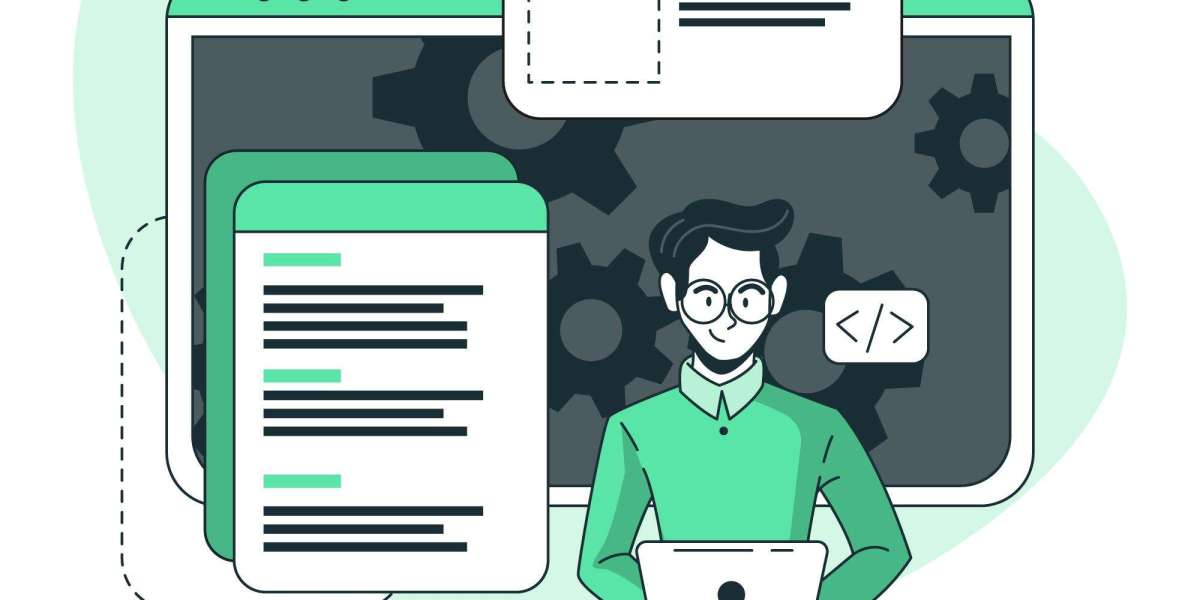Introduction
Preparing for a C test and interview can be a daunting task, especially if you're new to the world of programming or haven't been in an interview setting for a while. However, with the right approach and adequate preparation, you can increase your chances of success and confidently answer C# interview questions. In this comprehensive guide, we will explore the essential steps to help you get ready for your C interview, including tips, tricks, and a collection of common C interview questions.
Understanding the Basics
Before diving into the specifics of interview preparation, let's briefly recap what C is and why it's an important programming language.
C is a versatile, object-oriented programming language developed by Microsoft. It is widely used for developing Windows applications, web applications, and other software solutions. Knowing C opens up a world of opportunities for software developers, as it is a fundamental language in the Microsoft technology stack.
C Interview Questions: What to Expect
Interviewers typically assess candidates' C skills by asking a range of technical questions. These questions can cover various aspects of the language, including syntax, data types, object-oriented programming (OOP) principles, and more. To excel in your C interview, it's crucial to have a solid understanding of the following topics:
- C Basics: Familiarize yourself with C syntax, variables, data types, and operators. Be prepared to explain concepts like variables, loops, and conditional statements.
- Object-Oriented Programming (OOP): Understand the four pillars of OOP: encapsulation, inheritance, polymorphism, and abstraction. Be ready to demonstrate your knowledge of classes, objects, constructors, and access modifiers.
- Exception Handling: Know how to handle exceptions gracefully using try-catch blocks and the throw statement.
- Collections: Be well-versed in C collections, such as lists, dictionaries, and arrays. Understand when to use each data structure.
- LINQ (Language Integrated Query): Familiarize yourself with LINQ and how to use it to query collections.
- Delegates and Events: Understand delegates and events in C, as they are essential for event-driven programming.
- Threading: Be prepared to discuss multithreading concepts, including thread synchronization and thread safety.
- Asynchronous Programming: Know how to work with asynchronous code using async and await.
- Memory Management: Understand how memory management works in C, including garbage collection.
- Common Libraries: Familiarize yourself with commonly used libraries in C, such as System.IO for file operations and System.Net for network-related tasks.
By mastering these topics, you'll be well-equipped to tackle C interview questions with confidence.
Preparing for Your C Interview
Now that you have a clear understanding of the key concepts that may be assessed in your C interview, it's time to discuss the steps you should take to prepare effectively.
- Review Your C Fundamentals
Start your preparation by revisiting the fundamentals of C. Spend time coding and practicing basic concepts. Online resources, textbooks, and video tutorials can be valuable tools for refreshing your knowledge.
- Create a Cheat Sheet
Compile a cheat sheet containing essential syntax, keywords, and concepts. Having this reference handy during the interview can be a lifesaver. Make sure to include topics like variable declaration, control structures, and common method signatures.
- Hands-On Coding Practice
One of the best ways to solidify your C skills is through hands-on coding practice. Work on small projects, solve coding challenges, and explore C libraries and frameworks. Platforms like LeetCode, HackerRank, and GitHub can be excellent resources for this purpose.
- Understand Design Patterns
Familiarize yourself with common design patterns in C like Singleton, Factory, and Observer. Understanding when and how to apply these patterns can demonstrate your ability to write maintainable and efficient code.
- Explore Real-World Projects
If possible, work on real-world C projects or contribute to open-source projects. Practical experience will not only boost your confidence but also provide you with valuable examples to share during the interview.
- Mock Interviews
Practice mock interviews with a friend, colleague, or through online platforms. This will help you get accustomed to answering C interview questions under pressure and receive feedback on your performance.
Common C Interview Questions
To further assist you in your preparation, let's dive into a collection of common C interview questions. These questions cover various aspects of the language and can serve as a valuable resource for self-assessment and practice.
- What is the difference between value types and reference types in C?
Answer: Value types store their data directly, while reference types store a reference to their data. Value types include primitive data types like int and float, while reference types include objects, classes, and arrays.
- Explain the concept of inheritance in C.
Answer: Inheritance is a fundamental OOP concept in C. It allows a class to inherit properties and methods from another class. This promotes code reuse and the creation of a hierarchy of classes.
- What is the purpose of the 'using' statement in C?
Answer: The 'using' statement is used to manage resources, such as file streams or database connections. It ensures that resources are properly disposed of when they are no longer needed.
- How do you handle exceptions in C?
Answer: Exceptions are handled using try-catch blocks. Code that might throw an exception is placed inside the 'try' block, and the 'catch' block is used to handle the exception gracefully.
- What is LINQ, and how is it used in C?
Answer: LINQ (Language Integrated Query) is a set of features in C that allows you to query collections of objects using SQL-like syntax. It provides a powerful way to filter, sort, and manipulate data.
- Explain the concept of multithreading in C.
Answer: Multithreading involves executing multiple threads concurrently. C provides built-in support for multithreading through the System.Threading namespace.It enables efficient utilisation of CPU resources.
- What is garbage collection in C?
Answer: Garbage collection is the automatic process of reclaiming memory occupied by objects that are no longer in use. C uses a garbage collector to manage memory efficiently.
- What is an asynchronous method, and how is it defined in C?
Answer: An asynchronous method in C is used for performing asynchronous operations without blocking the main thread. It is defined using the 'async' keyword and typically returns a Task or TaskT to represent the asynchronous operation's result.
- What is a delegate, and how is it different from an event?
Answer: A delegate is a type that represents references to methods with a particular parameter list and return type. An event is a mechanism for providing notifications when certain actions occur. Delegates are often used to implement events in C.
- Explain the 'localhost 127.0.0.1' in the context of networking in C.
Answer: 'localhost' and '127.0.0.1' both refer to the loopback address, which is used to establish network connections to the local host (your own computer). They are often used for testing and development purposes, allowing a program to communicate with itself.
Conclusion
Preparing for a C test and interview requires dedication, practice, and a deep understanding of the language's fundamentals. By reviewing key concepts, practicing coding, and mastering common C interview questions, you can boost your confidence and increase your chances of success. Remember that preparation is key, and with the right approach, you can excel in your C interview and land that dream job in the world of software development.
In conclusion, preparing for a C interview may seem challenging, but with the right strategies and a commitment to mastering the language's fundamentals, you can increase your chances of success. Remember to review C basics, practice coding, and familiarize yourself with common interview questions. By doing so, you'll be well-prepared to confidently tackle your C test and interview, opening up exciting opportunities in the world of software development. Good luck!









